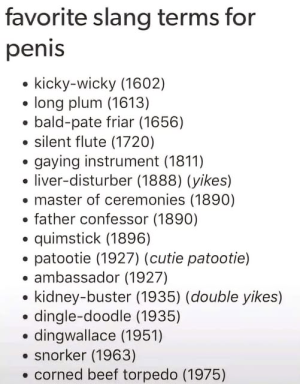It depends on which words and why you're using them. Examples?
You are using an out of date browser. It may not display this or other websites correctly.
You should upgrade or use an alternative browser.
You should upgrade or use an alternative browser.
Using "archaic" words
- Thread starter JT Woody
- Start date
It depends on which words and why you're using them. Examples?
Perspicacity, malodourous, melliferous, proffer, manse, elucidation, purloin, hither and yon, recalcitrance, enervation, presage, dalliance, deleterious, peregrinations, cognisance, predilection, gaol, parlous, and a few dozen others.
Not all of them are archaic, but they're uncommon in modern writing.
I used recalcitrant and elucidate today, I think. Never been a fan of perspicacity.
I always like the word "peevish" - dates to the 16th century - not really a word we use today
Perspicacity, malodourous, melliferous, proffer, manse, elucidation, purloin, hither and yon, recalcitrance, enervation, presage, dalliance, deleterious, peregrinations, cognisance, predilection, gaol, parlous
I don't use peregrinations (though I certainly shall in the near future), or parlous, manse only when I'm talking about Presbyterian preachers (which isn't often), but the rest of them are useful on a regular basis.
No, wait. Not melliferous. I'm thinking of mellifluous. Still sweet, but not honey.
Last edited:
I don't use peregrinations (though I certainly shall in the near future), or parlous, manse only when I'm talking about Presbyterian preachers (which isn't often), but the rest of them are useful on a regular basis.
Even gaol?
As the old story goes, upon being married, the young wife stated "We will live at the old manse". The newspaper of the day thus reported "The couple will reside at the home of the bride's father."
Last edited:
Yep. Law enforcement family. Use all sorts of similar words. Hoosegow. Calaboose. Carcel. (Put an accent mark over the a). Durance vile.
Yep. Law enforcement family. Use all sorts of similar words. Hoosegow. Calaboose. Carcel. (Put an accent mark over the a). Durance vile.
Interesting. I didn't think it had ever been adopted into American parlance.
We read Oscar Wilde, too. It's used ironically. Clink or lockup are more common.
I blame Mr. Webster.
He did it all without computers, too.
That's not though, the definition that Shakespeare was using - and that's the one I'm referring to, rather than the 'murcan sense.
I dunno. Seems to me a businessman needs to be perspicacious.I used recalcitrant and elucidate today, I think. Never been a fan of perspicacity.
That's the "pish, tush" sense of the word. Like, "nonsense!" or "don't be stupid!"MARGARET
Tush, women have been captivate ere now.
Henry V, Part I. Act 5, Scene 3.
I'm not so sure now....
I suspect the "rear end" meaning of the word is a variation of the Yiddish term "tuches." It would have come in from the Jewish Immigrants who landed in New York in the 19th and 20th centuries.
I think you have it right. There are a few influences of Yiddish in English (or at least American English) speech, not just in vocabulary but in syntax. For example, Robert Claiborne points out that "by me" (as in, "That's OK by me") is a direct translation of the Yiddish bei mir.That's the "pish, tush" sense of the word. Like, "nonsense!" or "don't be stupid!"
I suspect the "rear end" meaning of the word is a variation of the Yiddish term "tuches." It would have come in from the Jewish Immigrants who landed in New York in the 19th and 20th centuries.
But not use the word if they want to be taken seriously.I dunno. Seems to me a businessman needs to be perspicacious.
Similar threads
- Replies
- 61
- Views
- 2K
- Replies
- 5
- Views
- 272

